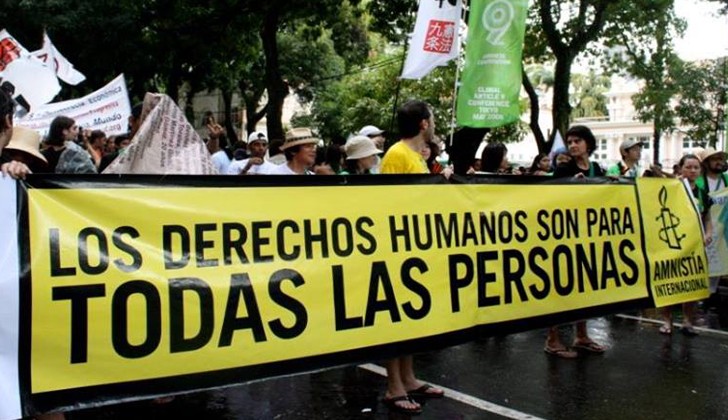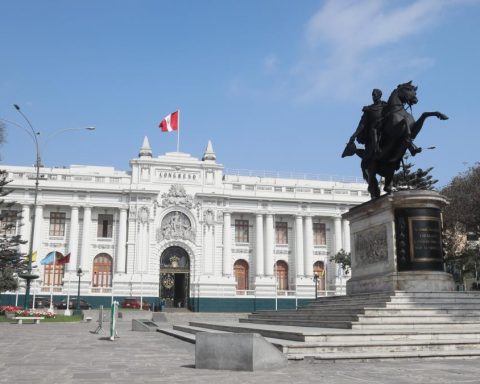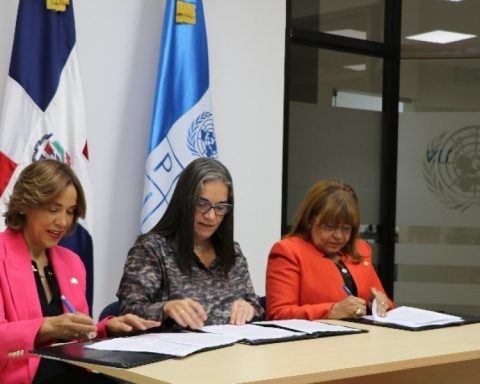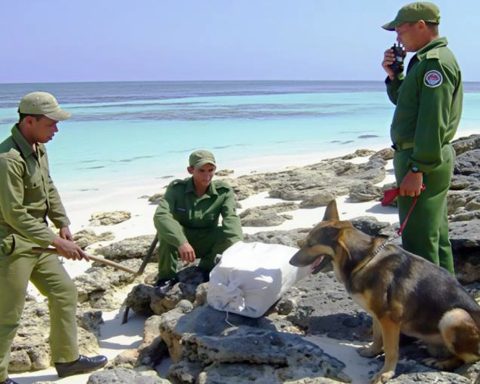
This April 1, the Amnesty International Report 2021/22, on the situation of human rights in the world, was released.
The study offers a critical overview of the state of the human rights situation in 154 countries and contains a comprehensive analysis of the trends observed in the field of human rights in 2021.
Regarding the Uruguay chapter, Amnesty International indicates that the management of the health emergency in terms of vaccination against Covid-19 was marked by “a late start, but with a constant rhythm, reaching a large proportion of the population”. He points out that the first months of 2021 were the “most critical in epidemiological terms”, because “Uruguay spent almost half a year in the red zone according to the Harvard Index and almost three months in first place in the subcontinent in terms of new daily infections. ”.
It is also indicated that the closure of activities for certain periods generated a “profound economic and social crisis from which Uruguay has not yet fully recovered. Although poverty figures have been falling, real wages have been affected and the recovery of employment is slow”.
Despite the multiple challenges that were faced due to the health context, “the signatures were reached to submit to a referendum the nullity of 135 articles of the Law of Urgent Consideration (No. 19,889)”. In this sense, Amnesty assures that said popular consultation “will mark one of the most significant political events of the year.”
Freedom of the press
On the other hand, the public agenda had several moments of “questioning freedom of the press and difficulties in accessing public information.” The report recalls that the Chamber of Deputies expressed its “rejection of a journalistic note published by an international media outlet, in which some difficulties were suggested in complying with the right to freedom of expression in the country.” In the same sense, “the cases of judicialization against journalists by political actors increased”, in this sense it is mentioned that Google “deindexed two articles of a Uruguayan media from the search engine due to anonymous complaints”, the levels of compliance with the Law on Access to Public Information (No. 18,381) “changes were reduced and installed in this law without consultation, which adds to the refusal by the government to access statistical information, as well as information on the agreements with laboratories.
Prison system
Another aspect referred to in the article is that Uruguay “continues to be indebted to the prison system.” The number of people deprived of liberty “continues to grow at a rapid rate.” The country remains “first in South America and 14th in the world in number of prisoners per hundred thousand inhabitants.” In 2021, a “greater increase in the female population deprived of liberty associated with drug micro-trafficking was observed, and there was a substantial increase in deaths in custody, whether due to natural or violent causes.”
Recent past
Likewise, Amnesty International expresses that “despite the historical debt of the State with justice, truth and reparation for crimes under international law and human rights violations of the recent past, the Uruguayan Justice culminated several ongoing processes, reaching the figure of a total of 17 soldiers, ex-military and ex-police officers sentenced for such crimes. However, on the other hand, “no progress was made in new evidence findings, nor remains of disappeared persons.”
It also recalls that Parliament began the debate on the draft Law on the House Prison Regime, which proposes that “this sentence be granted for those accused or convicted over 65 years of age, and among the beneficiaries are more than 20 prisoners tried for crimes under international law committed in the recent past.
Pregnancy in minors
Amnesty indicates that pregnancy in girls under 15 years of age “continues to be a structural and invisible problem in Uruguay.” According to data from the Ministry of Public Health (MSP), in 2020 “there were 60 girls under the age of 15 who were mothers and 47 who agreed to procedures for the voluntary interruption of pregnancy. There is a very close link between pregnancies in children under 15 years of age and early motherhood in relation to sexual violence and child abuse.
Femicides
“In a year of escalating violence against women, children and adolescents, social organizations denounced setbacks and omissions by the authorities in terms of prevention and care for this population, failing to comply with the provisions of Law No. 19,580 on Gender Violence. . According to data from the Observatory against Gender-Based Violence and Access to Justice, there were 30 femicides in 2021, nine more than in 2020,” Amnesty notes in its chapter on Uruguay.
In this sense, it is stated that the pandemic “has exposed structural problems that the country faces regarding mental health. Social isolation motivated an intense debate on the existing tools, those that are needed and the perspectives from which this problem should be addressed in Uruguay”.
Suicide
Another of the problems that Uruguay faces and to which the report refers is that the country “has one of the highest suicide rates on the continent and, despite the fact that it remained stable during 2020, specialists estimate an increase of between 18% and 23% for the first half of 2021”.
On the one hand, Uruguay “continues to play an important role in multilateral human rights arenas, such as its positions on resolutions related to environmental rights” and the same occurred with the “permanent complaints about the humanitarian crisis in various countries.” However, “the country did not support key resolutions on armed conflicts, as well as acts of discrimination, racism and xenophobia, demanding accountability from those responsible.”
Annual Report 2021_22 Uruguay Chapter by LARED21 on Scribd

















